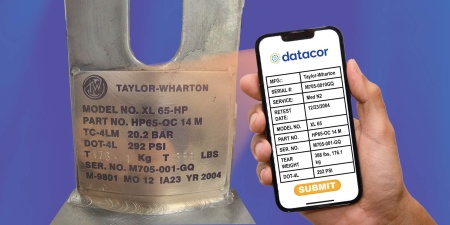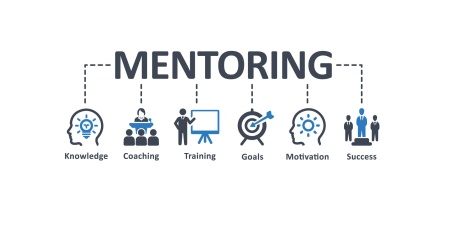Proverbs 11:14 — “Where there is no guidance, the people fall, but, in abundance of counselors, there is victory.”
I find these words inspiring. The periods of greatest growth in my own career have occurred while I have been under the guidance of wise, mature leaders. Today, I work as a mentor to the owners of mid-sized distributorships, guiding the next generation of leaders to success. The people I work with appreciate that my counsel is borne out of years of experience in the distribution industry.
The objective of a mentoring program is to pass on the skills and knowledge of senior professionals to those rising through the ranks. A mentor’s job is to help a business leader answer the question, “What do I need to do to move me and my company forward?”
Mentors and Growth
An entrepreneur often creates a business by pursuing an unfulfilled passion. His/her original idea is the seed and passion, coupled with discipline, fuels its growth. Properly tended, that seed flourishes and you find your business moving from the garage to a bigger space in an industrial park.
A business grows as long as the entrepreneur feels in control of its assets, both physical and personnel. Growing pains and operational confusion can create anxiety and a loss of enthusiasm on the part of the principal. This can halt growth. At this point, the business either finds a way to get organized and restructure or it fails or is sold. An experienced mentor in your specific industry can help a faltering business reorganize and prevent a failure.
Important First Steps
Executive mentors can help guide your business to growth. Here are the initial steps the right coach should take you through.
Step 1: Understand the Issues
All current growth issues should be summarized in a mind map. The goal of a mind map is to record key ideas/projects. Look for connections between them. In many cases, projects go unnoticed because they are never recorded or brought into focus. Most small or medium size distributors (SMBs) have 10 to 15 unrecorded projects.
If a business is growing faster than its ability to focus on the right projects at the right time, frustration ensues. Management feels a lack of control and problems can seem overwhelming. A mentor can guide you through the mapping process so that you do not waste precious time and energy. In “The Seven Habits of Highly Effective People,” Stephen Covey suggests you can start the mapping process by putting first things first. He recommends listing projects under two categories — Important and Urgent, and, Important but not Urgent.
Step 2: Prioritize the Projects
An experienced mentor can help you prioritize and evaluate projects. Each week, he/she will ask your team to list, in order of urgency, the Top 5 Projects that need to be moved forward with specific actions.
Step 3: Create Next Steps
Each weekly Top 5 Project will likely require many actions. Use a mentor to assist you in planning each incremental step. Having seen/solved many similar issues before, your mentor can help you with the chronology of actionable steps.
Step 4: Implement Solutions
An established distribution industry mentor comes with a network of suppliers, and equipment and software providers. Tapping into that network can help a distributor move more efficiently through project steps. For example, a distributor in the gas and welding industry may already have bulk CO2, and now wants to produce dry ice or supply the cannabis industry. If your mentor was involved with manufacturing dry ice or supplying cannabis businesses, he/she will know several suppliers who can provide the best equipment, installation, and cost. This expedites your start-up.
Step 5: Track Completed Projects
There is no better motivation than visualization of past accomplishments. When a project is completed, it should be dated and listed on a mind map. I suggest recording them under the corporate divisions: Executive, Operations, Sales, and Administration.
Implementing the above steps, my clients find they can become a habit within six weeks. The owners I work with are amazed at what they can accomplish quickly using Covey’s method.
Choosing a Mentor
If your company could benefit from some advice, look for a mentor with deep experience and success in a business like yours.
Serving as a mentor to emerging leaders in the atmospheric gas and welding supply distribution channel has been one of my most rewarding professional opportunities. My biographic sketch, which follows, is an example of the caliber of senior mentors available to coach the next generation.
As a gas and welding distributor channel professional, I began with a degree in Mechanical Engineering. I spent the first 13 years of my career climbing the corporate ladder at an international distributor supplier. When required travel became too extensive for me, I decided to take a more regional job. I joined a family held, independent distributor and for the next 34 years served as its Vice President of Sales. As VP, I helped grow the business from $5M to $65M. After retiring from that company, I became a consultant to owners of distribution companies under $10M.
An Affordable Choice
If you feel your business has grown past your in-house leadership capabilities, take advantage of the knowledge a mentor has to offer. For the smaller, privately held independent distributor mentoring is an affordable and smart choice.
The objective of a mentoring program is to pass on skills and knowledge. I have found that most SMBs will grow rapidly with support from senior professionals. These executives have established networks, leadership skills, and a knowledge base of proven solutions. Tapping into that kind of expertise usually involves hiring a highly paid consultant. By enlisting the right mentor, you benefit from the expertise of a seasoned professional and one specific to your industry.
For example, one of my distributor clients grew rapidly, opening three stores. He had a short-term vision of adding two more but was frustrated at how long it was taking to implement his plan. Since I had experienced the same issue in my career several times, I was able to advise him on solving that problem.
The highly talented executives I mentor share certain traits. They tend to be open to teaching, have a passion for learning, and ask a lot of good questions. Their other attributes include humility and a willingness to make sacrifices in order to succeed. Those characteristics enable a good coach to do his job.
Likewise, the mentee must also look for characteristics in an advisor that fit his personality and outlook. When choosing your mentor, be sure to seek someone that suits your needs.
What to Look For
Here are some qualities I suggest you look for in a mentor.
- Chemistry – The first consideration when looking for a mentor is personality fit. Do you have shared interests with this person? Is he or she suited to your approach to learning? Are your values and passions in alignment? Do you look forward to being in the presence of this person? What attributes does he/she have that will help you meet your goals?
- Competency – Choose mentors that are the most competent people you can find and invite them to share their knowledge with you. Don’t worry about finding everything you need in one person. Successful people tend to have multiple mentors who offer different competencies. Currently, I have mentors for four areas of my life — professional, educational, spiritual, and physical.
- Humility – Choose a coach who is humble and willing to share his/her failures. Vulnerabilities provide valuable lessons and illustrate how new paths can be forged. The right mentor will want you to learn from his/her failures and well as successes.
- Discernment – Look for specific characteristics when choosing a mentor. In Multipliers (thewisemangroup.com/books/multipliers), Liz Wiseman offers several insights on the makings of a discerning leader: “The right counselor is considered to possess wisdom and be of good judgement; especially with regard to subject matter often overlooked by others. The right coach will extend a clear and concrete challenge. He will ask the hard questions that need to be answered to achieve the challenge and require the pupil to give the answers.”
- Trust – The right mentor will be a confidant, willing to listen, and able to be trusted with what they hear. A good advisor understands that confidentiality is paramount in his role as a teacher and coach. You will want to share both your ups and downs with your mentor. You should have confidence that in sharing your deepest concerns with this person, the information will stay between the two of you.
- Mutual benefit – Seeing someone prosper from my life’s experiences has been incredibly rewarding. Helping others brings unexpected mutual benefits, like joy and motivation. The late Zig Ziglar (ziglar.com) said it well, “You can get anything out of life if you just help enough others get what they want out of life.” Mentoring requires putting someone else’s well-being, growth, and happiness before your own.
- Availability – Be flexible with your time. Work within your mentor’s schedule, not yours. Be clear on what you would like to see as the final outcome from the mentoring experience. Know the direction you hope to be taking, including your goals for the next twelve months. When you meet your potential mentor, be prepared with your questions.
Attain success
Successful people are always looking for someone who can make them even better. When considering a mentor look for someone who is enthusiastic, a good personality fit, considerate of others, and a respected expert in their field. They will agree, “Where there is no guidance the people fall, but in abundance of counselors there is victory.” I find great satisfaction in counseling young businessmen and women and believe it helps them attain success.









